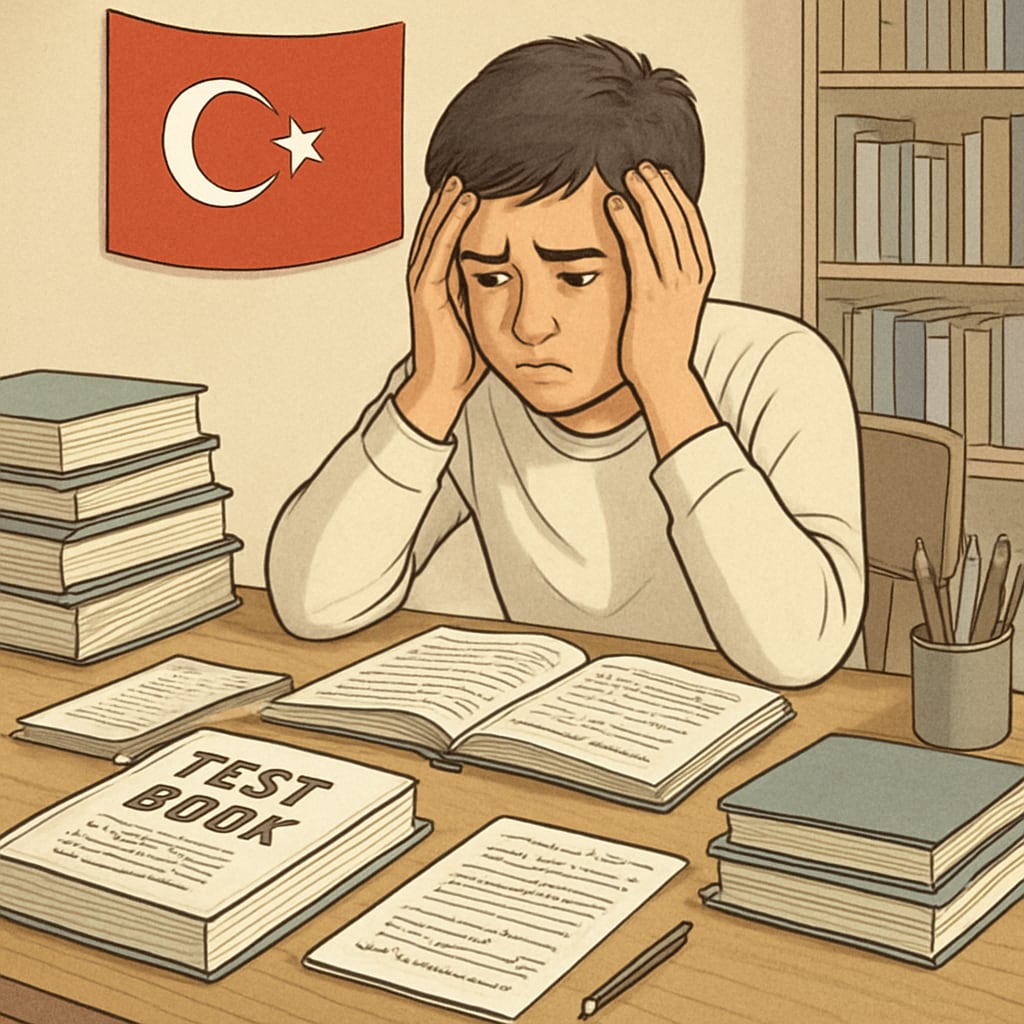In the realm of education, the difference between rigidity and flexibility can be the determining factor in unlocking a student’s full potential. Turkey’s heavily exam-driven education system stands in stark contrast to the UK’s A Levels model, which prioritizes student interests and academic exploration. This article delves into the core differences between these systems, examining how exam pressure impacts student development and offering insights into how interest-centered reforms can pave the way for a brighter future in education.
The Structure and Impact of Turkey’s Exam-Driven Education
Turkey’s education system is deeply rooted in standardized testing. From an early age, students are funneled into a model that prioritizes preparation for high-stakes exams like the LGS (High School Entrance Exam) and YKS (University Entrance Exam). These exams determine the course of a student’s academic and professional life, leaving little room for creativity, critical thinking, or personal interests.
Key characteristics of Turkey’s exam-driven system include:
- Centralized Curriculum: Students are required to follow a rigid national curriculum, often leaving no scope for individualized learning.
- Memorization Over Understanding: Success is largely measured by the ability to memorize and reproduce information, rather than applying knowledge to solve real-world problems.
- High Pressure Environment: The stakes of these exams create immense stress, often resulting in mental health challenges for students.
While this system ensures standardization and fairness to some extent, it stifles creativity and fails to cater to diverse talents. According to a 2022 study on Turkish education, over 60% of students reported experiencing anxiety due to exam pressures, significantly affecting their overall well-being.

The Flexibility and Student-Centered Approach of A Levels
In stark contrast, the A Levels system in the UK emphasizes flexibility and choice. Students select three to four subjects based on their interests and career aspirations, allowing them to specialize early. This approach fosters deeper engagement and a sense of ownership over their education.
Key features of the A Levels model include:
- Subject Choice: Students can focus on subjects they are passionate about, such as sciences, arts, or humanities.
- Critical Thinking: The curriculum encourages analytical skills, problem-solving, and independent research.
- Assessment Diversity: Instead of a single high-stakes exam, students are evaluated through coursework, practicals, and written exams.
This flexibility not only reduces stress but also equips students with skills that are valuable in higher education and beyond. A 2019 report by Britannica on A Levels highlighted that students who pursue this path often demonstrate higher levels of academic confidence and career readiness.

Lessons for Reform: Bridging the Gap
The stark differences between these systems raise a critical question: can Turkey adopt elements of the A Levels model to create a more balanced and flexible education system? While the centralized nature of Turkey’s system poses challenges, gradual reforms could make a significant impact.
Potential reforms include:
- Introducing Subject Choice: Allowing students to focus on their strengths and interests could improve engagement and outcomes.
- Reducing Exam Pressure: Incorporating continuous assessment and coursework could alleviate the stress of single high-stakes exams.
- Promoting Creativity: Integrating project-based learning and extracurricular opportunities would help students develop holistic skills.
By shifting towards a more student-centered approach, Turkey could better prepare its youth for the challenges of the modern world while fostering innovation and creativity.
Conclusion: Choosing Education Over Examination
Education systems shape not just academic outcomes but also the personal and professional trajectories of students. While Turkey’s exam-driven model ensures standardized outcomes, it risks overshadowing the unique potential of each learner. On the other hand, the UK’s A Levels system demonstrates how flexibility and student choice can lead to more fulfilling and effective education experiences.
As education systems worldwide seek to adapt to the demands of the 21st century, the balance between structure and freedom remains crucial. By embracing reforms inspired by models like A Levels, Turkey and similar countries can pave the way for a generation that is not just academically competent but also creative, resilient, and future-ready.
Readability guidance: This analysis uses clear, structured comparisons and actionable insights to ensure accessibility and engagement. Transitions and lists are employed to summarize key points effectively, maintaining readability for all audiences.


